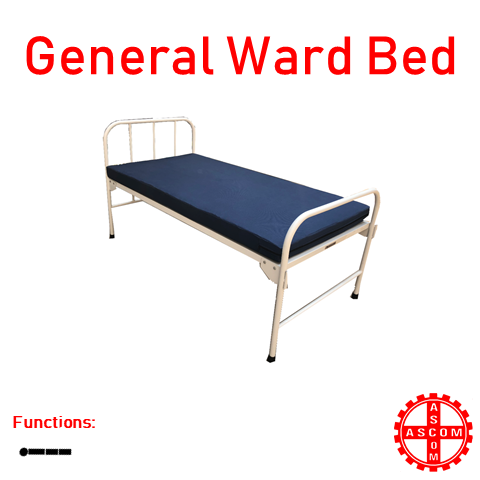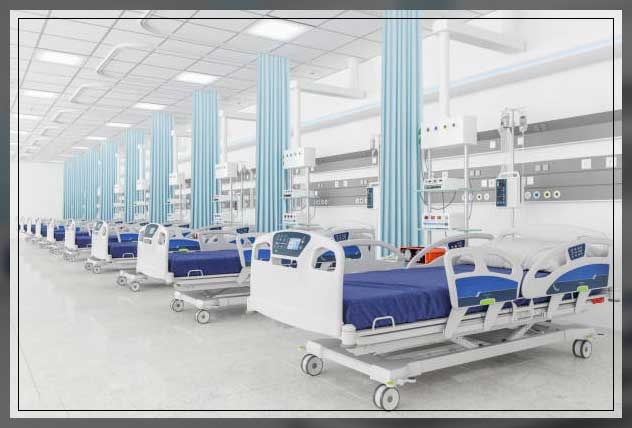The Ultimate Guide To Hospital Beds For Home Use
The Ultimate Guide To Hospital Beds For Home Use
Blog Article
Unknown Facts About Hospital Beds For Home Use
Table of ContentsSome Of Hospital Beds For Home UseSome Ideas on Hospital Beds For Home Use You Need To KnowSome Known Details About Hospital Beds For Home Use The Best Strategy To Use For Hospital Beds For Home UseThe Buzz on Hospital Beds For Home UseTop Guidelines Of Hospital Beds For Home UseExcitement About Hospital Beds For Home Use
There are three major kinds of healthcare facility beds: manual, semi-electric, and fully-electric. These beds use hand cranks to change the bed's height and elevate and reduce the head and the foot.
Semi-electric beds have an electric motor to increase and decrease the head and foot portions of the bed (hospital beds for home use). Full-electric beds have an electric motor that can elevate the head and foot areas of the bed as well as the whole height and positioning of the bed.
The 15-Second Trick For Hospital Beds For Home Use
There are several kinds of medical facility beds, each designed to meet particular client needs. Here are some common kinds: This is the most common kind of hospital bed, made for basic clinical use.
Lower to the ground than a conventional bed. This kind of bed is created for larger individuals, with a larger structure and higher weight capability than a standard bed. This sort of bed is developed particularly for youngsters, with smaller sizes than a conventional bed. Unique attributes such as complete size side rails and animation design.
This kind of bed is created for critically sick clients that need open monitoring and specialized clinical equipment such as ventilators and mixture pumps. This kind of bed is made for use throughout labor and shipment, with flexible placements and attributes to support the mommy and baby throughout the birth procedure.
Getting My Hospital Beds For Home Use To Work
Multiple feature and the devices perform increasing grip to various components of the vertebra and the extremities without relocating the body. These are simply a few examples of the sorts of medical facility beds available. The certain kind of bed utilized will depend upon the client's condition, clinical needs, and other variables.
Below is the thing you require to recognize. A one-function medical facility bed is a medical bed that enables an individual to move only the head or foot section up or down. A 2 feature medical facility bed usually refers to a type of clinical bed that has two adjustable functions to help people in healthcare facilities or care facilities.

How Hospital Beds For Home Use can Save You Time, Stress, and Money.
A 7-function ICU bed is a kind of medical bed that offers numerous adjustable features to support seriously ill individuals in an intensive care system (ICU) (hospital beds for home use). The 7 features normally consist of: Backrest change: The back-rest can be adapted to different angles to help the patient stay up or rest pleasantly
Elevation modification: The bed can be increased or lowered to make it easier for people to obtain in and out of bed, and for caregivers to give care. Trendelenburg position: The entire Get the facts bed can be slanted to advertise blood circulation and circulation in the body. Reverse Trendelenburg placement: The bed can likewise be tilted in the opposite direction to advertise blood flow and blood circulation in the upper body.
While even more affordable than electrical get more versions, these beds require exertion for changes. The primary benefits of hands-on beds are their cost and reliability, as they do not rely upon power. Nevertheless, the demand for hand-operated effort can be a restriction in circumstances where quick changes are essential or where caretakers deal with physical obstacles.
4 Simple Techniques For Hospital Beds For Home Use
Semi-electric health center beds use a balance of handbook and electric controls. These beds give an ideal middle ground in between manual and totally electrical alternatives, offering convenience of use without the full price of electric designs.
Semi-electric beds are well-suited for patients who require moderate modifications to the head and foot sections however can take care of without regular height adjustments. This makes them a cost-effective remedy for those looking for convenience and benefit without the need for consistent repositioning. Fully electrical healthcare facility beds feature electrical controls for seamless modifications to the elevation, head, and foot areas.
Specialty healthcare facility beds, such as ICU beds, long-lasting treatment beds, and bariatric beds, are very carefully developed to attend to specific clinical requirements. These beds use tailored look after varied person teams, improving both outcomes and comfort. In the following sections, we will certainly explore the major kinds of specialty healthcare facility beds, describing their certain benefits and applications.
With years of experience in manufacturing electric linear actuators - hospital beds for home use and close cooperation with the medical care sector, TiMOTION is well-positioned to offer trusted health care options. Our vertically integrated business handles every step of the production process, click this site from layout to actuator assembly, guaranteeing we provide exceptional value and customized remedies tailored to your specific requirements
Not known Incorrect Statements About Hospital Beds For Home Use

To learn even more regarding integrating these technologies right into your products, contact us today. More analysis:.
Information is sourced from the Medicare Expense Record.

Hospital Beds For Home Use for Dummies
A medical facility bed is a bed made specifically for medical purposes. It is not only a location for people to rest, yet additionally a platform for medical procedures. Unlike normal home beds, medical facility beds usually have adjustable functions, which can promote medical team to make various modifications according to the demands of clients, such as changing the elevation, disposition, and assistance angle of the back and legs of the bed.
Report this page